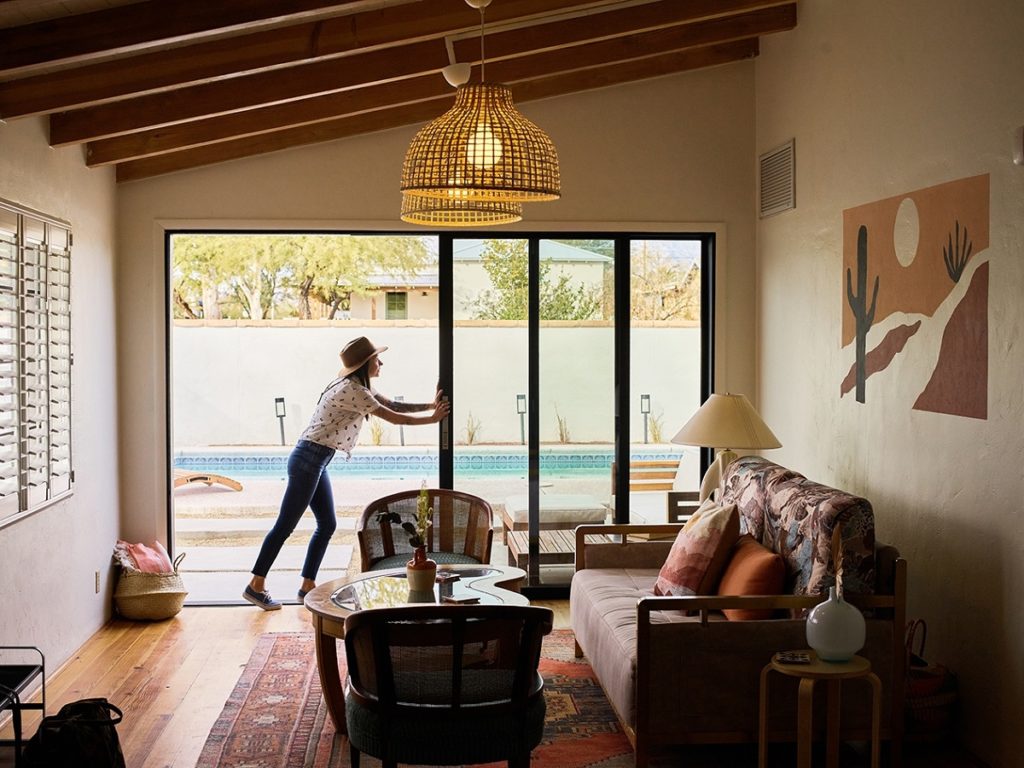Choosing the appropriate accommodation plan is fundamental to having a successful vacation. Both hotels and Airbnb have something to offer; decide what you want to get out of your stay before making a decision. We’re all planning our next Vacation, and some aspects of travel will most likely change the next time you pack your bags.
Few things, however, are as exciting as planning a trip to a new location, and with the rise of Airbnb, travelers have more options for lodging than ever before. But how do you choose between Airbnb and a hotel?
You may be concerned about Airbnb scams or high hotel prices, but ultimately, where you stay depends on the Vacation you want and how you like to travel and experience a place. Both types of accommodation have advantages and disadvantages, and this blog outlines some of the essential considerations in the Airbnb vs. hotel debate.
History of Airbnb
Airbnb began when friends Brian Chesky and Joe Gebbia put an air mattress in their living room and offered a bed and breakfast for hosting short-term guests who couldn’t afford to book a hotel. It quickly expanded to become AirBed & Breakfast.

The pair, who met in college at the Rhode Island School of Design, thought working as designer tour guides would be a fun way to make money. But unfortunately, they couldn’t afford their rent in San Francisco in 2007. It all started with an email: Gebbia sent Chesky an idea: what if they turned their loft into a designer’s bed and breakfast, complete with a sleeping mat and breakfast?
They made a simple website, airbedandbreakfast.com, purchased three air mattresses, and set them up in their loft. They quickly realized the potential of their idea and teamed up with an old roommate, Nathan Blecharczyk, to turn it into a business. Many years later, it has grown to be a multibillion-dollar corporation.
Diversity in Accommodation Types
Regarding what accommodations can provide, Airbnb frequently outperforms the competition for many travelers, including self-sufficient families and digital nomads.
Airbnb is the world’s largest home-sharing service, connecting private homeowners with people looking to rent their space for a set period. All stays are found using an online tool similar to most hotel chains, where you can search by destination and price range. Hotel suites can match some of these amenities but frequently cost more than a standard room.

Airbnbs, on the other hand, usually provide residential-style amenities such as living rooms, kitchens, dining rooms, laundry facilities, and, in some cases, a private parking space. These spaces, like hotel rooms, provide a place to sleep, host different guests regularly, and are cleaned in between uses.
While extended stay brands in the hotel industry are intended to cater to this customer, they lack the more spacious comforts of some residential Airbnb properties.
Which is the cheaper option?
Are you looking for a low-budget plan? Many travelers believe hotels are more expensive than Airbnbs, but lodging prices vary depending on the city. It’s a good idea to look into hotel and Airbnb prices in your destination before making a reservation.
If all other factors are equal, loyalty programs are one perk that can significantly influence your choice. However, many people are addicted to the ability to accumulate and redeem points for hotel stays, and Airbnb does not have a comprehensive loyalty program.

Every dollar you spend at participating hotels will earn you points through a hotel loyalty program, and you’ll get extra points if you have elite status with the company or use a credit card with its logo. Since you can later use them to pay for other stays, accumulating these points can significantly increase the value of your trip.
Hotels can be the best value when you factor in any perks from elite statuses, like complimentary breakfast or room upgrades.
Tip: Airbnb hosts may be open to negotiating their prices depending on demand and the number of nights you stay. You might be able to bargain for a lower rate if you intend to stay for a long time.
Do You Prefer Blending into the Local Community?
Most hotels are found next to nightclubs, dining options, and other tourist attractions. In contrast, Airbnb is a better option if you want to blend in with the locals who live there. For the duration of your stay, reserving an Airbnb apartment or room in a house makes you a local.
Like everyone else, you’ll go to the same supermarkets, eat at the same eateries, and lock your front door behind you when you leave in the morning. However, this strategy also allows you to explore a less-touristy (yet charming) neighborhood, which can help you get a true sense of a city’s everyday life instead of just its highlights.
Flexibility
Some hotels accommodate guests even with standard cancellation policies in unforeseen circumstances (like a sudden illness).

The cancellation and refund policies of Airbnb hosts are frequently set by them and are made clear on the listing page as well as during the booking process. Additionally, you can search for listings with a free cancellation option and find listings with both nonrefundable and refundable price options.
While there are a few extenuating circumstances for which Airbnb offers cancellation policies, each person’s experience will vary depending on the circumstances. Hotels can be most flexible and accommodating in cases of unforeseen circumstances.
The Verdict
It depends! Hotels are easy to find, have no chores, and offer assistance by calling the front desk. However, you will spend more on lodging and meals. Airbnb’s are private, frequently less expensive, and allow you to live like a local while saving money on food. However, you must do your homework on nearby neighborhoods and transportation, and their range of amenities and services can occasionally be less reliable than hotels.
Finding a place that meets your requirements and preferences is key to finding a fantastic accommodation option. Either way, you’ll enjoy a once-in-a-lifetime experience at your new destination.
Pearce Kibaale is a freelance writer, content creator, and CEO of Trip Dhow.


